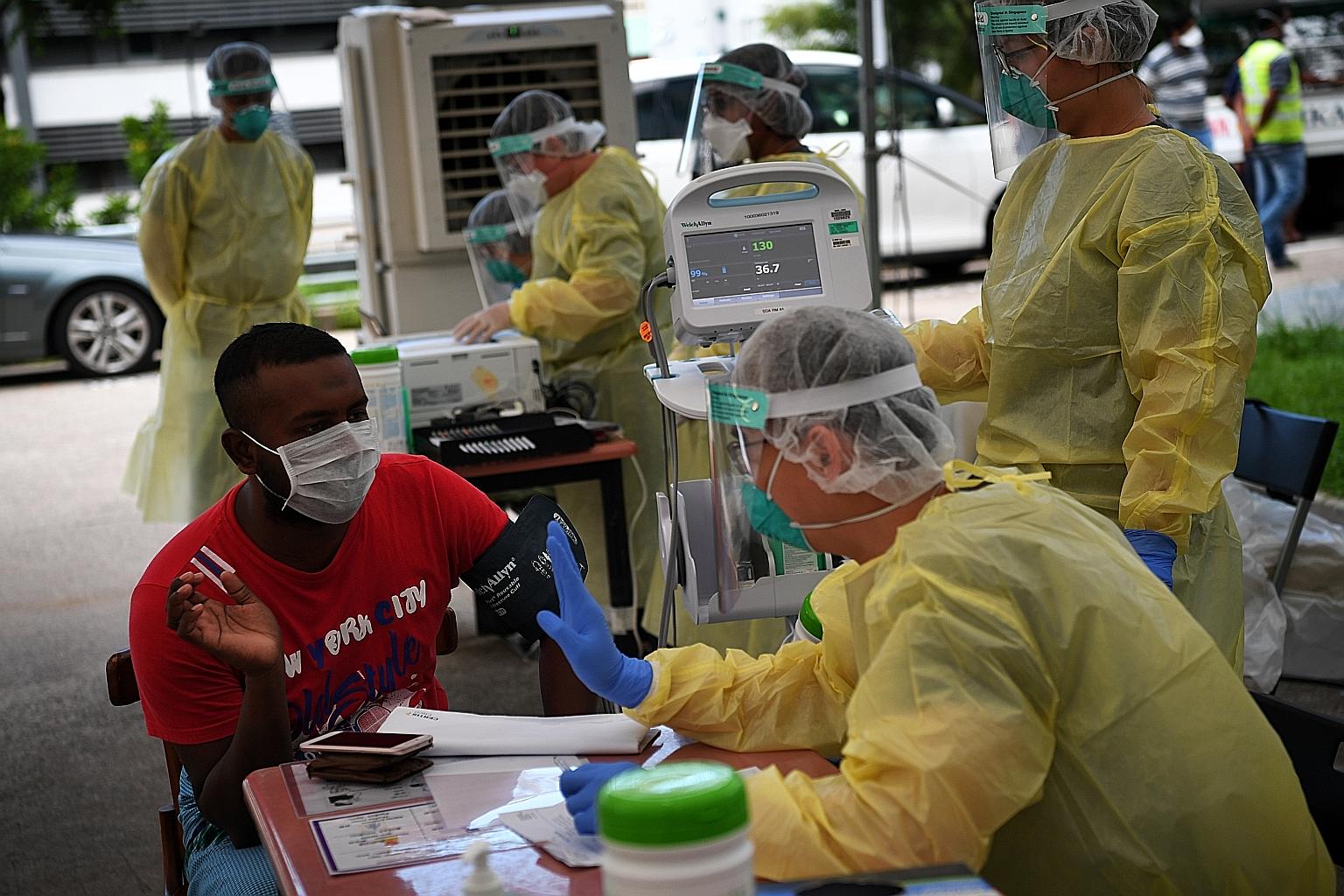Coronavirus pandemic
Most migrant workers expected to be cleared of coronavirus by end-July
Sign up now: Get ST's newsletters delivered to your inbox

A worker consulting a medical doctor at Homestay Lodge dormitory in Kaki Bukit earlier this month. National Development Minister Lawrence Wong said about 70 per cent to 80 per cent of foreign workers staying in dormitories are expected to be cleared of the virus by the end of next month, and the authorities hope to test and clear the remaining 20 per cent in August.
ST PHOTO: KUA CHEE SIONG
By the end of next month, about 70 per cent to 80 per cent of foreign workers staying in dormitories in Singapore are expected to be cleared of the virus, allowing them to resume work.
National Development Minister Lawrence Wong, in disclosing this at a virtual briefing yesterday, said these workers "would have either recovered or tested free of the virus".
"So we are controlling the infection in the community, and we are continuing to make progress to clear the migrant worker clusters and the dormitories, and allow the workers to resume work safely," said Mr Wong, who co-chairs a task force combating the Covid-19 outbreak in Singapore.
He added that the authorities hope to test and clear the remaining 20 per cent of workers of the virus in August.
There are 323,000 migrant workers living in dormitories here.
They account for more than 90 per cent of the 42,736 Covid-19 cases in Singapore.
Currently, about 120,000 workers have either tested negative for the virus or recovered as of Tuesday.
The Ministry of Health (MOH) said in an update yesterday that of the workers who are cleared of Covid-19, 80,000 can resume work, while the rest are waiting to be moved to appropriate accommodation before they start work.
On Tuesday, the Ministry of Manpower said 79,000 migrant workers had been cleared of the virus as of Monday.
But only 17,000 of them can resume work as the rest have to fulfil conditions such as downloading the TraceTogether mobile app for contact tracing.
Another condition is that dormitory operators must have implemented safe living measures, and arranged with employers to pick up and drop off workers at worksites at staggered times.
MOH also said yesterday that the authorities are conducting up to 10,000 tests for migrant workers daily and these comprise individual swabs, pooled swabs and serological testing. It added that the inter-agency task force addressing the outbreaks in dormitories is looking to clear dormitories in the most efficient way possible.
"Dormitories are prioritised based on their readiness for testing, which depends on factors, including the prevalence of infection, length of time since the onset of infection and adherence to safe distancing," MOH said.
Work is under way to build more dormitories to reduce density at current accommodation facilities. About 60,000 bed spaces for migrant workers will be ready by the year end, with another 100,000 to be available in the next few years.


